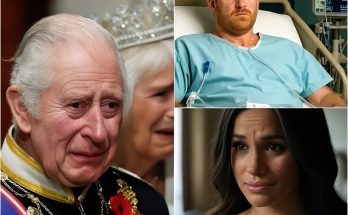
What began as a routine evening commute on a Charlotte light rail turned into a nightmare that claimed the life of a young refugee who had already endured the hardships of war. On August 22, 2025, 23-year-old Ukrainian refugee Iryna Zarutska was brutally stabbed aboard a Charlotte Area Transit System (CATS) train. Newly released surveillance footage from September 9 revealed the chilling final moments of her life, showing the sudden, unprovoked attack that ended her journey.
The video captured Zarutska seated quietly in an aisle seat near the middle of the train, wearing a black shirt and cap, her headphones on as she listened to music. Behind her sat 27-year-old Decarlos Brown, dressed in a red hoodie. According to investigators, the two had no interaction or confrontation prior to the incident. Without warning, Brown pulled out a knife and began stabbing Zarutska multiple times. Passengers screamed in horror as chaos spread through the car. Some rushed to her side, desperately trying to stop the bleeding, while others scrambled for safety.
Brown did not flee in panic. Instead, the video shows him calmly walking to the opposite end of the train, taking off his hoodie in an apparent attempt to disguise himself. The ordeal lasted less than two minutes. By the time the train reached East/West Boulevard Station, Charlotte-Mecklenburg police were waiting. Brown was arrested immediately upon stepping off the platform. Authorities later confirmed he faced first-degree murder charges and was permanently banned from all CATS services. His criminal record included prior offenses, and he had a documented history of mental health issues, raising difficult questions about whether the tragedy could have been prevented.
The release of the footage sparked widespread outrage and grief across Charlotte and beyond. City leaders were quick to respond. Mayor Vi Lyles described the killing as a “senseless and tragic loss” and offered condolences to Zarutska’s grieving family. She also praised local news outlets and community members for choosing not to circulate the graphic footage online, saying their restraint was an act of compassion and respect for the victim’s loved ones.
Even national leaders weighed in. U.S. President Donald Trump condemned the killing after viewing the footage, calling Brown a “lunatic” and a “madman.” He described the crime as “horrible” and extended his support to Zarutska’s family, stressing the need for stronger protections against violent individuals who, in his words, “embody the danger of evil people in our society.”
For those who knew Iryna Zarutska, the attack was not just a shocking crime but a devastating end to a life full of promise. Born on May 22, 2002, in Kyiv, Ukraine, she was the daughter of Anna Zarutska and Stanislav Zarutskyi. In August 2022, as the war in Ukraine raged on, Iryna fled to Charlotte with her mother, sister, and brother, hoping to build a new life in safety.
Her artistic talent was undeniable. A graduate of Synergy College in Kyiv with a degree in Art and Restoration, she expressed her creativity through painting, sculpting, and clothing design. Her friends often recalled her vibrant personality reflected in her work, each piece bursting with the same energy she brought into her everyday life. Neighbors remembered her kindness and love for animals, often seeing her walk dogs in the community with a smile that seemed to brighten everyone’s day.
But her dreams extended far beyond art. Iryna hoped to become a veterinary assistant, combining her compassion with her skills. She worked hard toward that goal, quickly learning English and even practicing her driving to achieve independence. Her adventurous spirit was balanced by her love of home and family, where she felt most at peace. Her mother affectionately described her as someone who could sleep for hours, calling it an “artist’s gift” and a sign of her deep inner world.
Her sudden death left a void not only in her immediate family but also among the many relatives and friends who cherished her. She is survived by her parents, her sister Valeriia, her brother Bohdan, her partner Stas Nikulytsia, her aunt Valeria Haskell and Frank Scott, cousins Vera and Viktor Falkner, and countless others whose lives she touched.
Her Instagram page, still filled with images of joy and creativity, now stands as a haunting reminder of all she was and all she might have become. Smiling portraits, snapshots of her artwork, and candid moments capture a young woman brimming with life—a stark contrast to the violent end she suffered.
The tragedy has raised urgent discussions about public safety on transit systems, mental health interventions, and the challenges faced by refugees starting over in unfamiliar lands. For the Charlotte community, it is a call to strengthen support for both vulnerable individuals and the systems meant to protect them.
Yet beyond the headlines and political statements, Iryna’s story is most profoundly a reminder of resilience and loss. She had already endured war, displacement, and the challenges of rebuilding from nothing, only to be struck down in an act of senseless violence. For those who knew her, she will be remembered not as a victim but as an artist, a dreamer, a caregiver, and a beacon of quiet strength.
As the investigation continues and her family mourns, one truth remains clear: Iryna Zarutska’s life mattered. And though it ended too soon, her spirit and story continue to resonate, reminding us all of the fragility of life and the need to honor kindness, creativity, and compassion wherever we find them.


